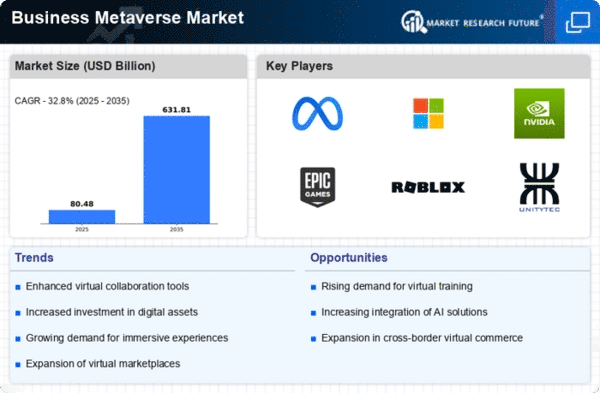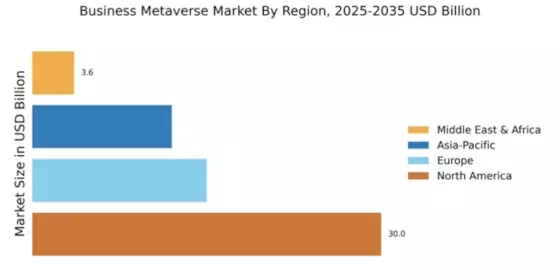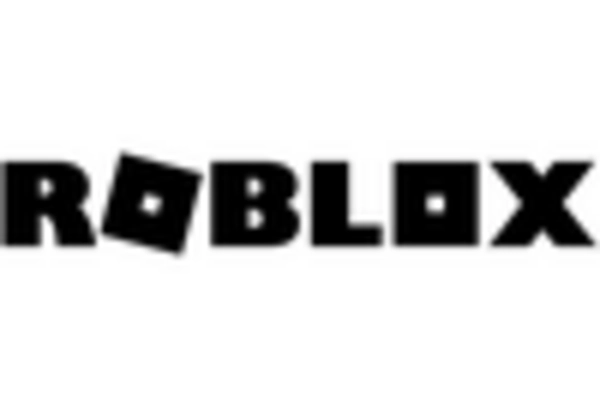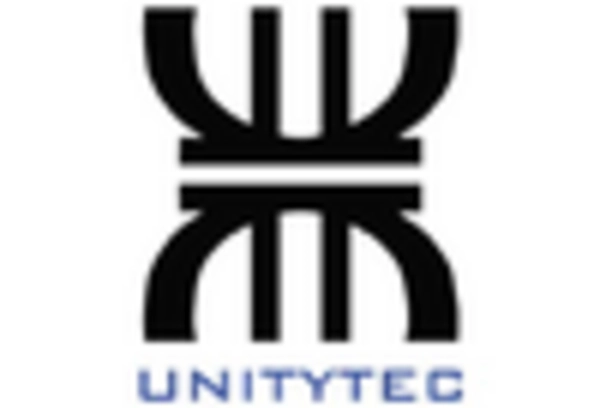Market Growth Projections
The Global Business Metaverse Market Industry is poised for substantial growth, with projections indicating a market size of 450 USD Billion by 2035. This growth trajectory reflects the increasing adoption of metaverse technologies across various sectors, driven by factors such as technological advancements and evolving consumer expectations. The compound annual growth rate of 10.45% from 2025 to 2035 suggests a robust expansion, as businesses seek innovative solutions to enhance their operations and customer engagement. This upward trend underscores the metaverse's potential to reshape the business landscape, offering new opportunities for companies to thrive in an increasingly digital world.
Technological Advancements
The Global Business Metaverse Market Industry is experiencing rapid growth driven by technological advancements in virtual reality, augmented reality, and blockchain technologies. These innovations facilitate immersive experiences and secure transactions, enhancing user engagement and trust. For instance, companies are increasingly adopting virtual environments for training and collaboration, which can lead to improved productivity. As of 2024, the market is valued at 150.75 USD Billion, reflecting a growing recognition of the metaverse's potential in business applications. This trend is expected to continue, with projections suggesting a market size of 450 USD Billion by 2035, indicating a robust compound annual growth rate of 10.45% from 2025 to 2035.
Evolving Consumer Expectations
Consumer expectations are evolving, driving businesses to explore the Global Business Metaverse Market Industry. Customers now seek personalized and immersive experiences, prompting companies to leverage metaverse technologies to enhance their offerings. For example, brands are utilizing virtual showrooms and interactive product demonstrations to engage consumers more effectively. This shift towards experiential marketing is likely to reshape how businesses interact with their customers, fostering loyalty and brand affinity. As the market continues to grow, projected to reach 450 USD Billion by 2035, businesses that adapt to these changing expectations may gain a competitive edge.
Increased Remote Work Adoption
The shift towards remote work has significantly influenced the Global Business Metaverse Market Industry. Organizations are seeking innovative solutions to maintain collaboration and communication among dispersed teams. The metaverse offers a unique platform for virtual meetings, social interactions, and team-building exercises, which can enhance employee engagement and satisfaction. As businesses increasingly recognize the benefits of virtual environments, the demand for metaverse solutions is likely to rise. This trend aligns with the overall growth of the market, which is anticipated to reach 450 USD Billion by 2035, reflecting a compound annual growth rate of 10.45% from 2025 to 2035.
Investment in Digital Transformation
Investment in digital transformation initiatives is a key driver of the Global Business Metaverse Market Industry. Organizations are increasingly allocating resources to integrate advanced technologies that enhance operational efficiency and customer engagement. The metaverse serves as a vital component of this transformation, enabling businesses to create virtual environments that streamline processes and foster innovation. As companies recognize the strategic importance of digital transformation, the demand for metaverse solutions is expected to surge. With the market valued at 150.75 USD Billion in 2024 and projected to grow to 450 USD Billion by 2035, this trend underscores the potential for substantial returns on investment.
Collaborative Opportunities Across Industries
The Global Business Metaverse Market Industry presents collaborative opportunities across various sectors, fostering innovation and synergy. Industries such as retail, education, and healthcare are increasingly exploring metaverse applications to enhance their operations and customer experiences. For instance, educational institutions are utilizing virtual classrooms to provide interactive learning experiences, while retailers are creating immersive shopping environments. This cross-industry collaboration is likely to drive the market's growth, as businesses recognize the potential of the metaverse to transform traditional practices. As the market evolves, the anticipated growth to 450 USD Billion by 2035 highlights the importance of these collaborative efforts.

















